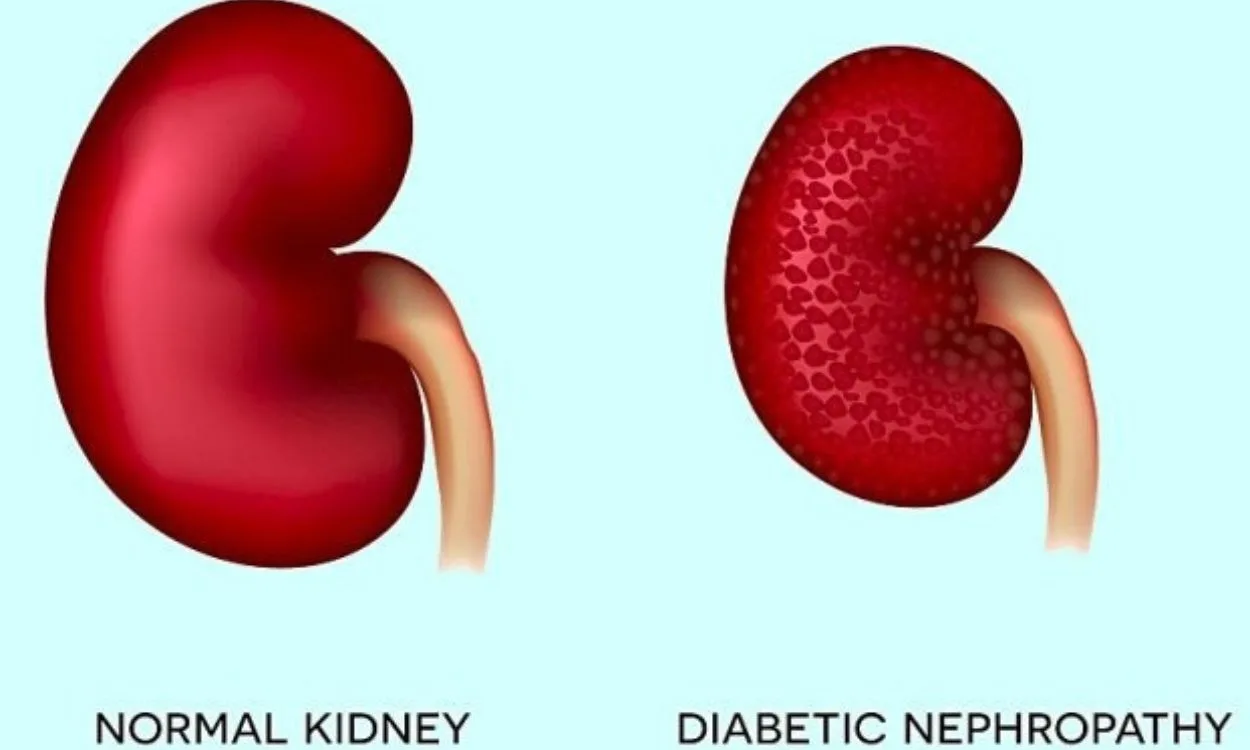Can diabetes increase the risk of kidney complications?
Diabetes is a chronic metabolic disorder characterized by high blood sugar levels. It occurs when the body either does not produce enough insulin or cannot effectively use the insulin it produces. Diabetes can lead to various complications if not properly managed, and one of the most significant complications is kidney disease. In fact, diabetes is the leading cause of kidney failure worldwide.
Understanding the link between diabetes and kidney complications
The kidneys play a crucial role in filtering waste products and excess fluids from the blood. They help maintain a balance of electrolytes and regulate blood pressure. However, high blood sugar levels over an extended period can damage the blood vessels and impair the kidneys’ ability to function properly. This damage can lead to a condition called diabetic nephropathy or diabetic kidney disease.
How diabetes affects the kidneys
When blood sugar levels are consistently high, the small blood vessels in the kidneys become damaged. The kidneys’ tiny filters, known as glomeruli, are particularly vulnerable to this damage. As a result, the kidneys may not be able to filter waste products efficiently, leading to their accumulation in the blood.
Over time, this can cause a decline in kidney function, which may progress to end-stage renal disease (ESRD), where the kidneys are no longer able to function adequately. At this stage, patients may require dialysis or a kidney transplant to survive.
Other risk factors for kidney complications in diabetes
While diabetes is the primary risk factor for kidney complications, certain factors can further increase the risk:
- Poor blood sugar control: Consistently high blood sugar levels accelerate kidney damage. Maintaining optimal blood sugar control through proper diabetes management is essential in minimizing the risk of kidney complications.
- High blood pressure: Diabetes and high blood pressure often occur together. Elevated blood pressure can further strain the kidneys and accelerate kidney damage. Managing blood pressure through lifestyle modifications and medications is crucial in preventing kidney complications.
- Duration of diabetes: Long-standing diabetes increases the risk of kidney complications. The longer an individual has diabetes, the greater the risk of developing kidney disease.
- Genetics: Some individuals may have a genetic predisposition to kidney complications in diabetes. It is essential to be aware of any family history of kidney disease and take appropriate measures to manage diabetes effectively.
Preventing and managing kidney complications in diabetes
Fortunately, there are ways to reduce the risk of kidney complications in diabetes or slow down their progression:
- Maintain good blood sugar control: Keeping blood sugar levels within the target range recommended by your healthcare provider is crucial. Regular monitoring, adherence to medication, and lifestyle modifications like a healthy diet and regular physical activity can help achieve this.
- Control blood pressure: Along with blood sugar control, managing blood pressure is essential. Lifestyle modifications, such as reducing sodium intake, regular exercise, weight management, and medication if necessary, can help control blood pressure.
- Regular kidney check-ups: Regular monitoring of kidney function through blood and urine tests is essential in detecting any signs of kidney damage early. This allows for timely interventions and management strategies.
- Healthy lifestyle habits: Adopting a healthy lifestyle can significantly reduce the risk of kidney complications. This includes maintaining a balanced diet, quitting smoking, limiting alcohol consumption, and managing stress.
Fitpaa – Your partner in managing diabetes and kidney complications
If you have diabetes and are concerned about kidney complications, Fitpaa can offer comprehensive support and guidance. Fitpaa is an end-to-end AI-driven metabolism monitoring and management technology that can help you achieve your health and fitness goals.
By taking the Fitpaa Metabolism Assessment, you can identify the root cause of your health condition and optimize your metabolism, which is crucial in managing diabetes and preventing complications. With a team of expert fitness coaches, nutritionists, and doctors, Fitpaa can prepare a personalized Fitpaa Capsule tailored to your specific needs.
The Fitpaa Capsule combines medical therapy, exercise therapy, nutrition therapy, and cognitive behavioral therapy to optimize your metabolism, regulate hormones, and help you achieve your health and fitness goals. The Fitpaa mobile app provides real-time guidance, habit building, and progress tracking features to keep you motivated and on track.
In addition to managing diabetes and kidney complications, Fitpaa can also assist with weight management, mental health, and various other health and fitness goals. With a 7-day risk-free trial and a money-back guarantee if you don’t achieve the promised results, Fitpaa is committed to helping you transform your life.
Take the first step towards a healthier future by downloading the Fitpaa app today and experience the joy of getting fit and excelling at life. Your well-being is our mission!









